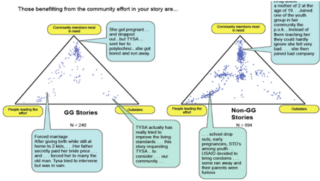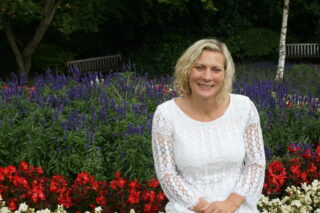How – and why – did you first get involved in improvement; and what has been your journey since then?
I instinctively seem to be drawn to the places aimed at improving how we work and live for individuals, teams and organisations. This began within the Third Sector, working with individuals experiencing mild mental health problems at work and looking at how to elicit understanding to change the outcome of situations or experiences. I then moved to working with teams and organisations on how the dynamics, relationships and capabilities converged or left gaps and the ways these might be filled or developed. These areas of work went on to help me qualify in Occupational Psychology and start my role in Public Health in Behaviour Change. I now work to achieve understanding and enhancement of broad and complex populations.
What most inspired you professionally?
I believe that as a global society we are on the cusp of understanding how to change our approaches to ‘wicked’ problems and issues, embracing complexity and digging deep into ourselves.
I believe that as a global society we are on the cusp of understanding how to change our approaches to ‘wicked’ problems and issues, embracing complexity and digging deep into ourselves. Real trailblazers in what needs to happen to make this shift including Otto Scharmer, Robert Kegan and homegrown equivalents like Helen Bevan. They all inspire me to be brave and to build the evidence to create a groundswell that will get the change we all know is needed.
Can you share a hard-won lesson you’ve learnt about what makes for a successful (or unsuccessful) improvement project?
I arrived in Public Health (newly situated within local government), oblivious to the political environment and the cultural adjustments that were still fresh. I learned the importance of understanding how the parts of the organisation and the relationships within it were needed to instigate and get change. It brought home to me the need to truly listen to those leading the organisation to better interface and engage for the changes I believed were important.
What change could we make that would do most to embed continuous improvement in health and care?
To place emphasis on developing people’s level of consciousness – not what they know but how they understand and navigate each situation. The emphasis at the moment is focused more on the skills and knowledge that we can give people. The development of levels of consciousness requires a deeper learning. This is enabled by appropriate leadership which over time would be promulgated and become the dominant mindset, where the wellbeing of all is central.
Why did you join Q?
Q enables us to see what improvement means in different sectors and gives us the ability to listen to others’ learning and spread word of our work
I am a fellow of the Improvement Academy where Q was promoted and I decided to join. The new, broader network across the country was attractive. This enables us to see what improvement means in different sectors and gives us the ability to listen to others’ learning and spread word of our work. Change work can feel isolating, and the sense of connections and shared outlooks provides energy and direction.

What new connections (and collaborations) have you made as a result of joining the Q community – and what have you learnt so far?
I have been able to connect with those in Q with a similar interest in working with complexity and specifically those having used the same software I am piloting in Public Health (‘Sensemaker’). It has facilitated closer partnering between myself and local NHS organisations that I wasn’t formerly involved with. This has enabled a greater partnering by our separate organisational development departments and conversations around culture change projects and similar endeavours that are the hotbed of change.
Can you tell us about something you’re currently working on that Q members might be able to contribute to?
Q has been instrumental in helping to convene a special interest group called ‘Closing the Gap: Developing Improvers for a Complex World‘. We are keen to attract those who have an interest in complexity, and individuals’ development as a tool for getting meaningful change and using techniques for deep listening – from communities to leadership groups. I am presenting the first session on 28 February with some work using Sensemaker software to map complexity.
We are fortunate to have secured speakers for late February and March who will offer considerable insight into what is happening in this field at the moment. On the 27 March we are joined by Sofia Kjellström from Sweden’s Jönköping Academy who will share her research around improvement and Adult Development. I am also gathering interest from a range of other organisations to become involved, and hopefully become Q members as a result.

Comments
Dimple Keen 6 Mar 2018
What a great (and simple) intervention! thanks for sharing